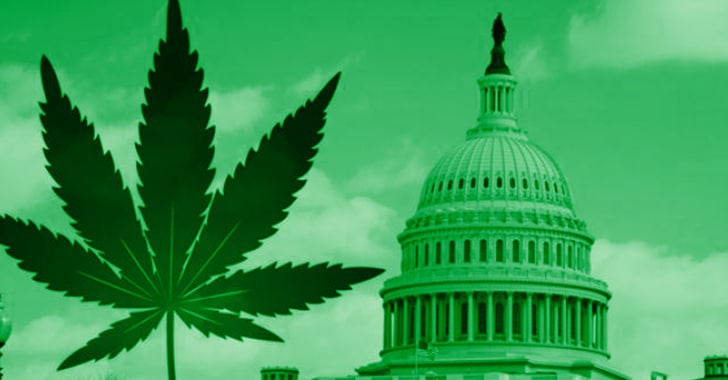Although all eyes during the recent election were primarily on the contest between Kamala Harris and Donald Trump, and secondarily on the contests between the blue team and the red team for control of the U.S. House and Senate, ballots in many states also contained candidates for state and local offices and referendums.
More than 140 ballot measures appeared on 41 state ballots. Out of these, six ballot measures were related to drug use: three on recreational marijuana, two on medical marijuana, and one on psychedelics.
The states of Florida (Amendment 3), North Dakota (Initiated Measure 5), and South Dakota (Initiated Measure 29) had ballot measures regarding the legalization of the recreational use of marijuana. The medical use of marijuana was already legal in all three states. Nebraska had a ballot measure (Initiative 437) to legalize the medical use of marijuana and another measure (Initiative 438) to establish the Nebraska Medical Cannabis Commission to regulate the medical marijuana program. Massachusetts had a ballot measure (Question 4) to “allow persons 21 years of age or older to grow, possess, and use natural psychedelic substances, as well as establish a commission to regulate the licensing of psychedelic substances and services.”
Voters in Florida and North and South Dakota rejected their state’s marijuana legalization initiatives: Florida voters for the first time, and North and South Dakota voters for the third time. Voters in Nebraska approved their two state ballot measures related to legalizing and regulating the medical use of marijuana in the state, but voters in Massachusetts rejected their state’s initiative to legalize psychedelic substances.
This means that the legal recreational use of marijuana will continue in 24 states, the District of Columbia, and the U.S. territories of the Northern Mariana Islands, Guam, and the Virgin Islands, while the medical use of marijuana — thanks to Nebraska — is now legal in 39 states, the District of Columbia, and the U.S. territories of the Northern Mariana Islands, Guam, Puerto Rico, and the Virgin Islands.
Although almost half of the states have legalized the recreational use of marijuana, and only 11 states remain where the medical use of marijuana is prohibited, there is just one problem: We still need marijuana freedom.
Regardless of how many states have legalized the recreational or medical use of marijuana, the federal government still classifies marijuana as a Schedule I controlled substance under the Controlled Substances Act (CSA) with “a high potential for abuse,” “no currently accepted medical use,” and “a lack of accepted safety for use of the drug under medical supervision.” Possessing, growing, transporting, or distributing marijuana is a federal felony, with violations resulting in fines and/or imprisonment. And the Supreme Court, in the case of Gonzales v. Raich (2005), has ruled that the Controlled Substances Act did not exceed Congress’s power under the Commerce Clause as applied to the intrastate cultivation and possession of marijuana for medical use. This means that the federal government has the authority to prohibit marijuana possession and use for any and all purposes.
But it is not just on the federal level and in the states that have not legalized marijuana where we need marijuana freedom; We still need marijuana freedom in the states that have legalized marijuana.
Because marijuana legalization should never be confused with marijuana freedom. There is a difference.
In the states that have legalized marijuana, there are so many government rules and regulations on the state and local level that the marijuana market is far from free. Marijuana legalization laws generally don’t apply to legal adults who have not reached the age of 21. When it comes to medical marijuana, it is only allowed for certain medical conditions: Users must first obtain an identification card, doctors must prescribe the marijuana, and the number of cannabis plants and the weight of marijuana that one can possess is limited. When it comes to recreational marijuana, only so many plants can be cultivated at home, marijuana can only be purchased from certain “qualified” businesses, the number of cannabis plants and the weight of marijuana that one can possess is limited, and the amount of marijuana that one can give away is limited.
Libertarians believe in real marijuana freedom.
There should be no rules, restrictions, or regulations at any level of government for any reason regarding the buying, selling, possessing, growing, processing, transporting, advertising, using, delivering, or “trafficking” of marijuana. There should be a free market in marijuana just like the free market that exists in fruits and vegetables. Any marijuana user should be able to purchase or grow as much marijuana as he wants, sell or give away as much as he wants, store as much marijuana as he wants, and smoke as much as he wants in his own home.
This doesn’t mean that medical marijuana “works,” or that using marijuana for recreational purposes is not addictive, harmful, risky, unhealthy, immoral, sinful, or dangerous. It also doesn’t mean that marijuana users are not responsible for any negative consequences of their marijuana use (car accidents, child abuse or neglect, diminished job performance, diminished reputation, health issues, financial ruin, etc.).
Advocates of marijuana freedom must not let up the fight just because another state legalizes the medical or recreational use of marijuana. They must not let up until real marijuana freedom is obtained.
Reprinted with permission from Future of Freedom Foundation.


